26+ Best Ecommerce Tools To Grow Your Business In 2026
Today, businesses are connected to their target audience without any geographical restrictions. The horizons of ecommerce and online stores are expanding, but driving traffic is an art to master. Ecommerce tools can be Leveraged to target and reach those potential customers effectively.
Many ecommerce businesses and online stores suffer losses due to ineffective sales, which might result from inefficient strategies. Sometimes, however, the strategies are enough, but the tools required for successful execution are missing.
To maximize operations, leveraging ecommerce tools can be your way out. By incorporating the best tools, you can increase sales, know your performance, and optimize operations.
Keep reading to learn about the best ecommerce tools until it’s a wrap!
What are Ecommerce Tools?
ecommerce tools are the software or tools that help ecommerce businesses manage and grow their online stores.
These tools help businesses manage various aspects of their online stores, from inventory management and order processing to marketing and customer relationship management.
Various e-commerce tools are available in the market, each providing unique features and functionalities to scale and improve e-commerce. Such as leveraging an ad intelligence tool to stay ahead of the competition.” after “and improve e-commerce.
Before exploring the best ecommerce tools for your business, discover some key benefits of ecommerce tools.
The Key Benefits of Ecommerce Tools
Here are some major benefits of relying on e-commerce tools for your business growth.
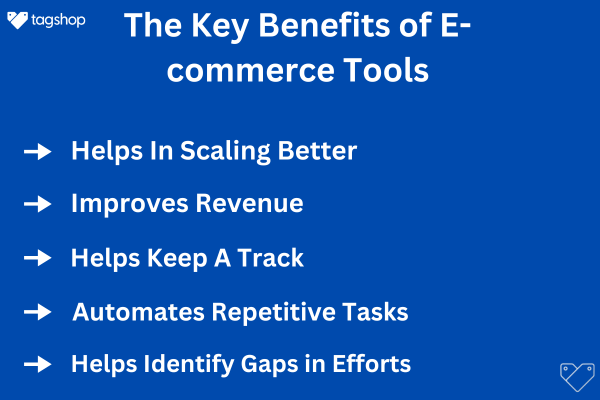
1. Helps In Scaling Better
There are many efficient e-commerce tools like CRMs, call center services, voice assistants, AI chatbots, etc. available in the market that allow businesses to streamline tasks like inventory management, GetVoIP’s guide on call center automation tools for improving customer interactions, SMS verify service, order processing, and customer service. These e-commerce platforms and tools are designed to be scalable, allowing businesses to easily adapt and expand their operations as demand grows, whether it’s adding new products, integrating new payment gateways, or expanding into new markets.
2. Improves Revenue
E-commerce tools help businesses create a seamless and personalized shopping experience for customers, which can lead to increased customer satisfaction, loyalty, and repeat purchases. Email and SMS marketing tools are especially useful in improving the marketing efforts of e-commerce businesses, allowing them to build customer relationships and grow sales. Success also depends on offering in-demand, high-converting items, which is why choosing the right products to sell plays such a crucial role in revenue growth. This targeted approach serves as a highly effective sales prospecting strategy, helping companies engage potential buyers and turn them into loyal customers.
3. Helps Keep A Track
E-commerce tools, along with a professional web design agency, offer real-time analytics and reporting capabilities, allowing businesses to monitor key metrics such as sales performance, website traffic, customer behavior, and inventory levels.
This real-time visibility enables businesses to identify trends, patterns, and areas for improvement quickly. By incorporating time-blocking apps, they can further streamline their operations and boost efficiency. Additionally, by making data-driven decisions, businesses can make informed choices, enhancing strategic planning. Implementing web app development within their toolkit allows them to customize solutions and adapt swiftly to changing market demands. Moreover, they can integrate product management software to ensure teams stay aligned on priorities, track progress effectively, and manage the product lifecycle with greater control and visibility.
4. Automates Repetitive Tasks
E-commerce tools automate repetitive and time-consuming tasks such as order processing, online invoicing (including guidance on how to invoice a client, generating pay stubs, and customer support, freeing up valuable time for business owners and employees to focus on strategic activities and growth initiatives.
Moreover, relying on e-commerce tools also reduces the risk of human error, ensuring an accurate execution of tasks. For example, Vendoo is a tool that can crosslist items (list them on multiple sites simultaneously), manage inventory, automate tasks such as social media sharing, calculates eBay fees costs with an eBay fee calculator, and provide sales analytics to track performance and prevent issues like double-selling. Some businesses also explore an employee rewards and recognition program to appreciate team efforts and maintain a positive work culture alongside growth.
5. Helps Identify Gaps in Efforts
Using a AI web scraping solution, for example, can gather detailed data on competitors’ pricing, product offerings, and customer reviews, giving you a more comprehensive view of where your strategy may be failing. You should, however, learn how to avoid getting blocked by Cloudflare or similar shields that websites may use. These insights can help brands improve the overall functioning of their business, improving the customer experience for better results.
In the next section, we will list the top 15 ecommerce tools.
26+ E-commerce Tools for Your Businesses
Some leading ecommerce tools offer different features to solve all major e-commerce pain points.
1. Tagshop

Tagshop is an AI UGC platform that empowers brands to craft UGC-style AI videos with hyper-realistic AI avatars. With Tagshop, brands can launch UGC campaigns effortlessly, creating high-quality, human-like AI UGC in minutes and at scale. Say goodbye to time-consuming, expensive content production and hello to limitless, cost-effective UGC that drives engagement and conversions.
Features:
- URL to Video AI
- 200+ AI avatars
- Create AI video directly from product URL
- AI script writer
2. Claspo
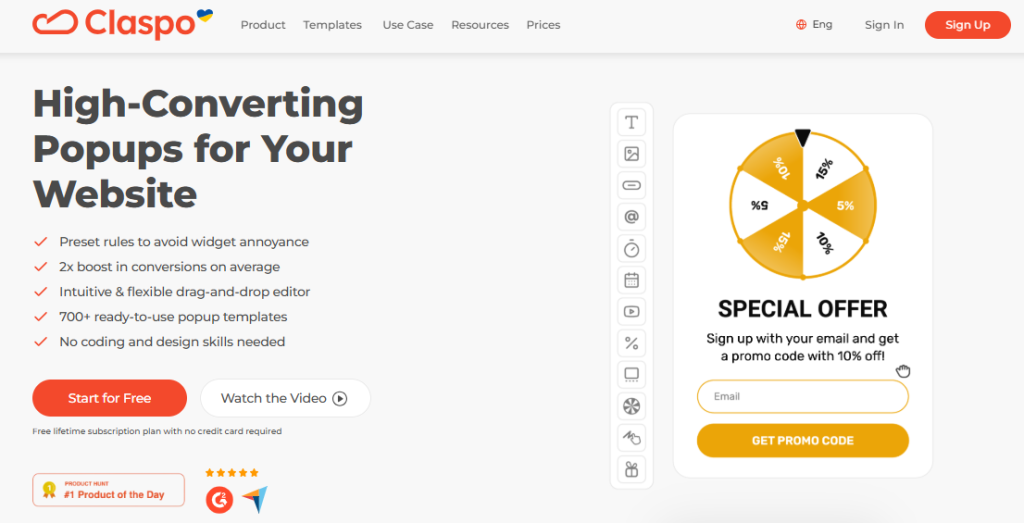
Claspo is an easy-to-use popup creation tool built to help ecommerce brands capture leads, reduce cart abandonment, and boost conversions without needing a developer.
With its intuitive drag-and-drop builder and 1,000+ templates, you can launch high-converting widgets in minutes. Whether you’re promoting a sale, collecting emails, or gathering feedback, Claspo website widgets make it simple to grab attention and guide shoppers through the funnel.
Smart targeting options let you personalize popup messages based on user behavior, traffic source, and more. You can also trigger popups at just the right moment — on exit intent, scroll depth, time delay, and beyond.
Claspo integrates seamlessly with top ecommerce platforms like Shopify and WooCommerce, so you can sync your store data and run campaigns that truly convert.
You’ll also get access to built-in analytics and A/B testing to track performance and continuously improve results.
Claspo offers a free plan with unlimited features, making it a great choice for growing ecommerce businesses.
3. Shopify

Shopify is an ecommerce CMS platform that helps you create a website, add products or services, offer and market it to others, and collect payment. Shopify is currently one of the biggest online shop builders available.
If you want to create a Shopify store but are worried about not having the right connections, manpower, or budget to build a website, don’t worry. Shopify’s drag-and-drop website builder allows you to customize your store’s settings and designs without coding. Moreover, many website templates offered on Shopify should make launching a fully functional online store easier. For advanced customization needs, Shopify store developers can create custom solutions beyond standard templates.
On top of all that, with the thousands of plugins available in the Shopify App Market, you can quickly build an online store without inventory. If you’re still hesitant, Shopify offers a 3-day free trial and a $1 for 1-month deal, so you can test the platform risk-free before committing to a paid plan.
4. Renderforest

Renderforest is an all-in-one creative platform that lets you design videos, graphics, and animations — including fun and engaging cartoon-style content. Its AI cartoon generator feature allows you to turn concepts into animated characters and scenes, making it easier than ever to create unique product demos, explainer videos, or branded content with a playful twist.
Best for: Businesses and creators who want to add AI-powered cartoon animations to their videos without complex editing.
Why we like it: Whether you need a quirky character for a product demo or a fun animated intro, Renderforest’s AI cartoon generator can create it in minutes. It blends automation with customization, so your cartoons still feel on-brand and original.
Key Features:
- Cloud-based editing and export options
- AI-powered cartoon and animation creation
- Ready-made templates for product demos and branding
- Logo and intro maker tools built-in
5. Hubspot
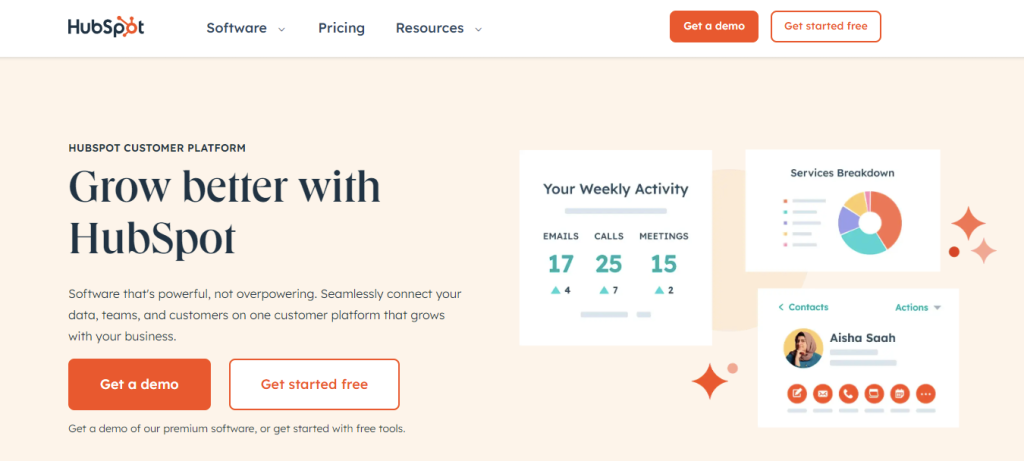
Hubspot is a CRM or customer relationship management software that has become more popular. It provides business owners with a suite of lead generation, marketing, and customer service tools to create more long-term revenue from each customer acquired.
HubSpot is one of the most prominent leaders in providing features like website building, hosting email campaigns, and other marketing features. Its robust integration with BigCommerce and offers a key advantage, allowing businesses to directly leverage HubSpot’s full marketing, sales, and customer service features within their online stores.
It also integrates with BigCommerce and other platforms, allowing businesses to streamline their e-commerce and marketing efforts. HubSpot also has a free inbound marketing school that will help businesses learn how to market their services or offerings digitally, and for those looking to expand their knowledge, it’s incredibly useful to know how to connect Google Analytics to Hubspot for a more comprehensive marketing strategy.
6. Admove

Admove is an AI-driven ad creation and optimization platform built specifically for e-commerce brands. It uses “AI agents” that automate the entire social media ad workflow from research to deployment letting e-commerce businesses run high-performing paid campaigns with minimal manual effort.
Admove’s focus on e-commerce and autonomous campaign management makes it ideal for Shopify store owners who want ads that continuously refresh without manual intervention. The platform handles everything from creative generation to optimization, acting like an always-on marketing team.
7. Desku
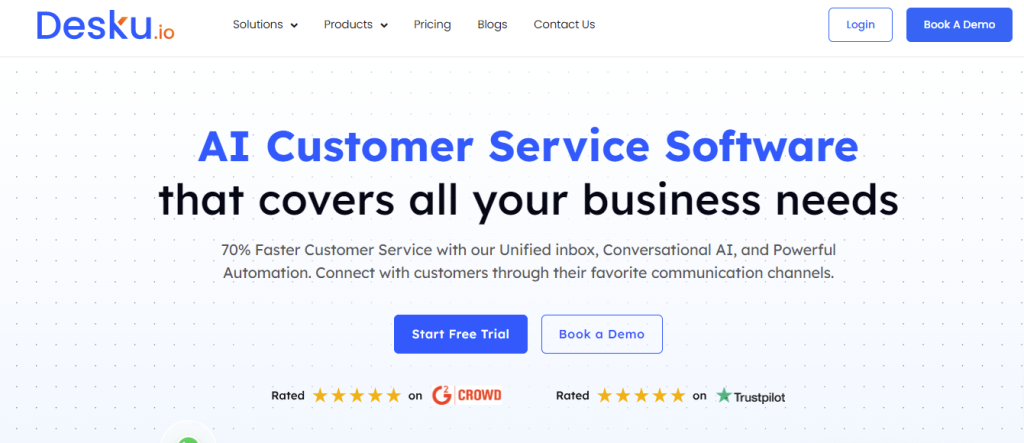
Desku is an AI-powered customer support platform that helps businesses manage customer queries efficiently. It offers live chat, chatbot, shared inbox, and virtual features.
Desku offers an AI assistant, ecommerce platform integration, and a knowledge base. It streamlines customer queries and provides a unified inbox for better customer engagement.
8. EngageBay
EngageBay is an all-in-one marketing, sales, and customer support software for small businesses, startups, and solopreneurs. You get email marketing, marketing automation, landing pages, contact management, segmentation, customer journey mapping, sales pipelines, and more.
EngageBay is one of the most affordable marketing software programs. It offers unlimited contacts and other advanced features, which allow businesses to scale up quickly without worrying about marketing funds.
EngageBay also integrates with top eCommerce platforms like Shopify, BigCommerce, WooCommerce, and wholesale eCommerce platforms, making it easy to manage your online store from one place. With built-in eCommerce marketing automation, you can streamline your campaigns and boost sales without ever leaving the platform.
9. Coupler.io
Coupler.io simplifies ecommerce data analysis and reporting by consolidating data from popular apps into user-friendly reports. It enables automatic data gathering and direct loading into Looker Studio, Google Sheets, Power BI, Tableau, and other reporting platforms. With numerous integrations available and no coding required, ecommerce managers can create live dashboards, custom ecommerce reporting templates, Google Sheets dashboard templates, Looker Studio reports, and funnel dashboards to gain a comprehensive view and identify areas for improvement.
Leverage Coupler.io to optimize every aspect of your ecommerce business. Improve conversions by analyzing customer behavior and checkout journeys to uncover upsell and cross-sell opportunities. Manage inventory efficiently with tailored dashboards to avoid disruptions and poor investments. Evaluate marketing spending across Facebook, Google, and Instagram to maximize ROI, and refine pricing strategies by analyzing historical data to mitigate seasonal risks. Coupler.io empowers you to make informed decisions and unlock your store’s full potential.
10. Moosend
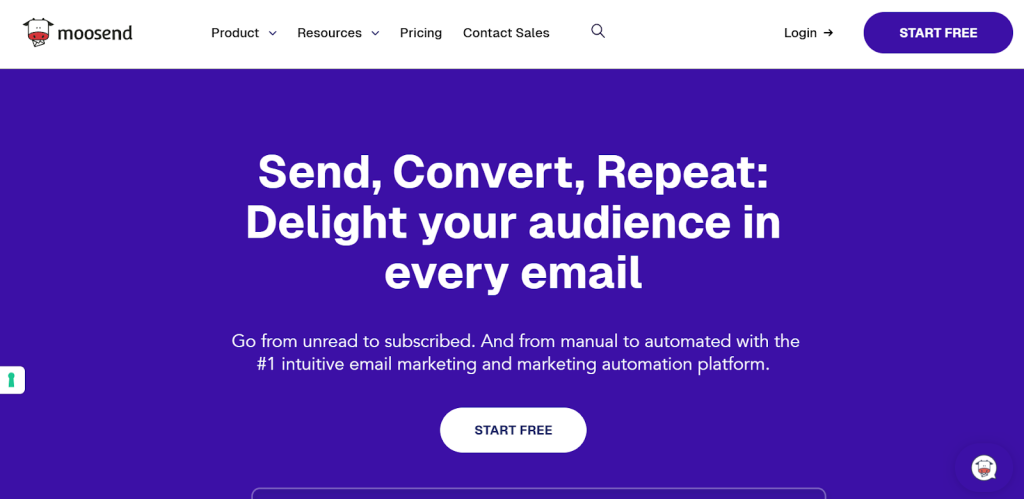
Moosend is an eCommerce-friendly email marketing and automation platform built to help online stores turn browsing and purchase behavior into revenue. It combines a drag-and-drop email editor with ready-to-use automation recipes, so you can launch campaigns fast and keep everything consistent across your lifecycle messages.
Moosend supports cart abandonment automations and dynamic content blocks that can pull in cart items and power personalized emails. You can also add automated product recommendations based on customer behavior and purchase history, making upsells and cross-sells feel tailor-made and relevant.
It also covers the must-have operational layer with transactional emails (like order or shipping confirmations), so your critical messages and marketing journeys can live in the same ecosystem.
11. GetResponse
GetResponse is a powerful email and marketing automation platform that helps businesses create, manage, and automate their marketing campaigns. Perfect for eCommerce businesses, GetResponse offers tools for email marketing, landing pages, marketing automation, and even webinars, making it easy to connect with your audience and boost sales.
With its intuitive drag-and-drop builder, you can design eye-catching email templates, set up automated workflows, and segment your audience to send personalized messages at the right time. Additionally, GetResponse helps you grow your list by offering pop-ups, forms, and landing pages to capture leads seamlessly.
One of the standout features of GetResponse is its one-click integration with leading eCommerce platforms like Shopify, WooCommerce, and PrestaShop. This integration makes it even easier to sync your store with your marketing efforts, automating processes like abandoned cart recovery and product recommendations to increase sales.
12. SE Ranking
SE Ranking is a robust SEO platform that will help your ecommerce website stay healthy, rank better, and attract more buyers. You can use it to conduct keyword research, track positions, analyze competitors, run technical audits, detect toxic backlinks to your website, identify gaps in your strategy, and much more. It also offers a content marketing platform to create high-quality content for your website and local marketing tools to ensure a consistent online presence in your target area.
SE Ranking incorporates AI and ML technologies to ensure accurate and actionable insights. It regularly updates its databases, supports multiple integrations, and offers API to work with big datasets and automate routine processes.
13. Productive
Productive is an all-in-one project and financial management platform that will help you coordinate marketing campaigns, run smoother daily operations, or just manage resources and track profitability (in real-time). It supports e-commerce companies by making them more profitable and efficient.
The tool is designed to replace fragmented tools (like free spreadsheets and pricey specialized solutions) with a central workspace for planning, forecasting, managing projects and finances.
What makes Productive special is that it combines project management and finance tracking in one place. As a result, you get visibility into budgets, profitability, and resource allocation (like your team’s workload, or availability to take on more work). It also has easy-to-use capacity planning features, automated time tracking, and a whole lot of customizable reports for tracking ROI.
If your e-commerce teams need data on profitability, or make workflow improvements, book a demo with Productive. The tool also offers a free two-week trial.
14. Customer.io

Customer.io is an outbound marketing and sales tool for e-commerce businesses. With ecommerce sales tools like Customer.io, companies can strategically market to potential customers. The tool provides features like sending email and SMS notifications about sales to leads and existing customers, re-targeting abandoned carts, and automating email funnels.
You can also integrate a Customer.io account with other marketing and ecommerce tools to automate the sales and marketing process. That way, your store generates income even when you aren’t doing anything, especially when you deploy the right messaging and strategies to your email marketing efforts.
15. Semrush
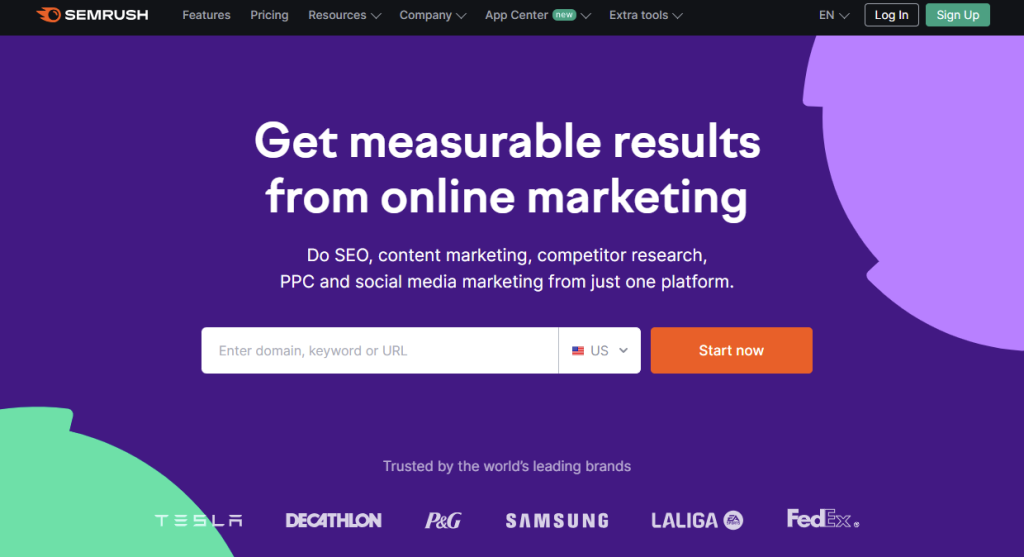
One of the other popular ecommerce SEO tools is SEMrush. This service helps you improve your search engine marketing game by giving you access to insights and analyses that will show you opportunities to reach more audiences through SEO and search engine advertising.
With Semrush, business owners can search for relevant keywords that will help boost their visibility on organic searches. Search engine optimization is one of the most sustainable business development strategies today, and investing in a tool that will help you tap into that power will be a worthy investment.
16. Jupitrr AI

Jupitrr AI is an AI video editing tool designed for UGC creators and professionals who create talking-head videos to showcase products and build their personal brands on social media like Instagram, LinkedIn, YouTube, etc. With Magic Edit, you can instantly transform raw footage into engaging, high-quality content—featuring AI-generated hook text, dynamic animations, stylish subtitles, smooth B-roll transitions, and AI-powered background music.
Ideal for eCommerce brands and content creators, Jupitrr AI makes it effortless to produce polished, short-form videos for social media, LinkedIn, and product promotions—without any manual editing.
As you explore these powerful e-commerce tools, consider their AI readiness. The most effective platforms are increasingly those that either integrate advanced AI features or are built with an open architecture to seamlessly incorporate future AI innovations.
17. ShippingEasy
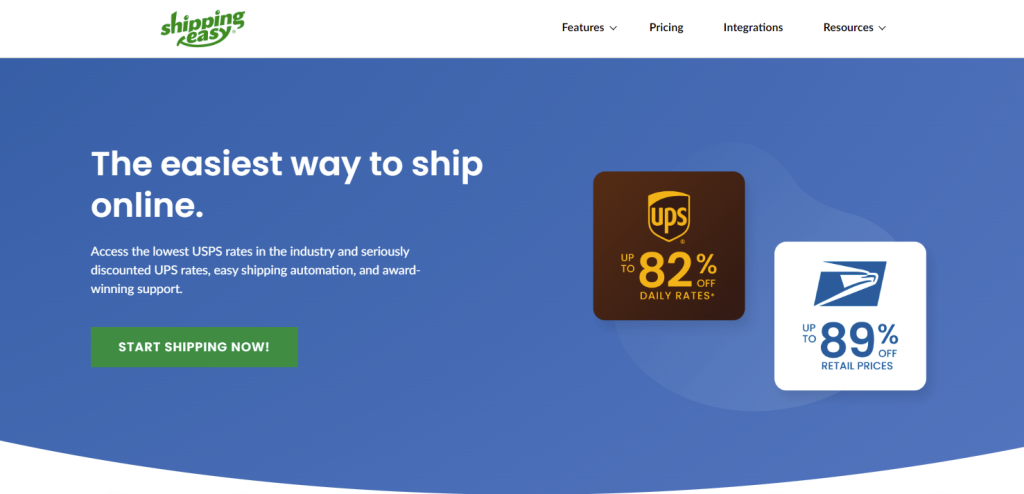
On top of the eCommerce business equipment and tools you should have for marketing, you should also pay attention to fulfillment. A business that effectively delivers and ships out products will inadvertently get repeat customers. That’s where tools like ShippingEasy come in handy.
With ShippingEasy, you’re able to track and fulfill orders with ease. It brings your online stores from all marketplaces into one dashboard and helps you manage your product shipping schedules and progress. To manage repetitive tasks better, you can choose from several invoicing software to make your work easier.
18. ScrapingBee

ScrapingBee offers a simple API that can scrape any website and deliver the data in a structured format, all without the technical headaches typically associated with web scraping. Forget endless copy and pasting sessions — this powerful tool can automatically help your business collect crucial product information, including pricing, availability, and descriptions, from other ecommerce websites, giving you a vital edge over your competition.
Better yet, ScrapingBee’s rotating proxies and rate-limiting avoidance features ensure that your scraping efforts aren’t blocked, allowing you to access vast amounts of data without worrying about being cut off.
19. Scrapingdog
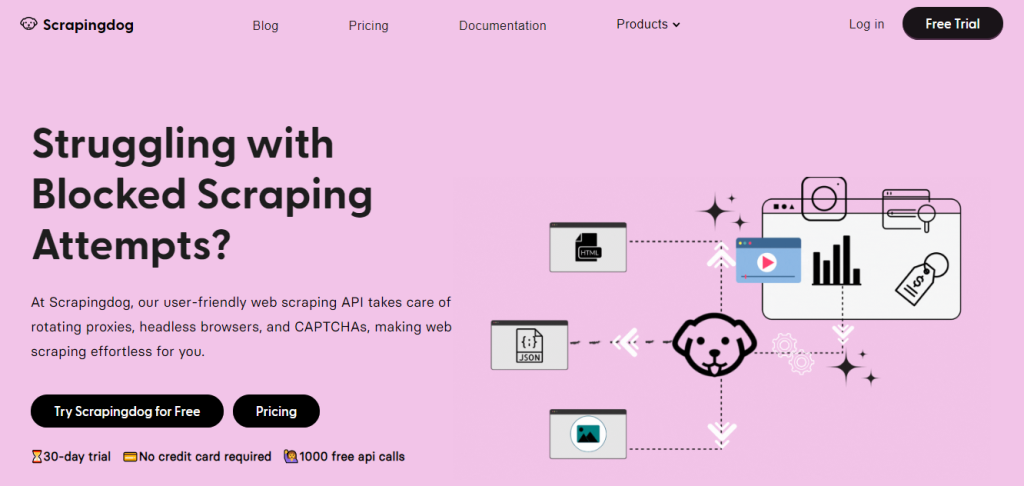
Like Scrapingbee, Scrapingdog is API-based software that can extract data from any e-commerce platform, such as Amazon, eBay, or Walmart.
API-based software that can extract data from any e-commerce platform, such as Amazon, eBay, or Walmart
With the help of Scrapingdog, you can build a price tracker for Amazon and keep an eye on your competitors. This price tracker can help you change your pricing strategy when your competitors do so.
You will even get a real-time notification when the pricing fluctuates. Using Scrapingdog, you can extract reviews from e-commerce platforms, which will help you do sentiment analysis and develop your product accordingly.
20. Appy Pie Website Builder
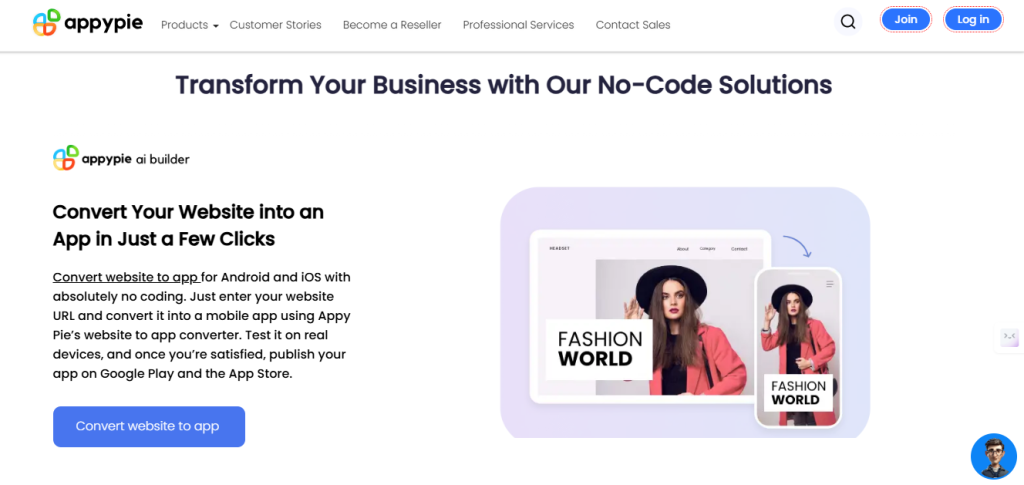
Appy Pie Website Builder is an innovative e-commerce website builder that empowers you to create a professional online store with ease. It allows you to design and customize your site, add products or services, market your offerings, and process payments seamlessly. Appy Pie is recognized as one of the leading e-commerce website builders in the market today.
Worried about lacking the technical expertise, resources, or budget to build a stunning website? With Appy Pie’s intuitive drag-and-drop interface, you can effortlessly tailor your store’s layout and settings without any coding skills, making it an accessible solution even for those still exploring coding career options. A wide array of customizable templates is available, ensuring that you can launch a fully functional and visually appealing online store in no time.
Moreover, Appy Pie offers an extensive range of plugins and integrations, enabling you to add powerful features to your e-commerce store without inventory hassles. And if you’re still on the fence, you can explore the platform with a risk-free trial period, allowing you to experience its full potential before making a financial commitment.
21. Delight Chat
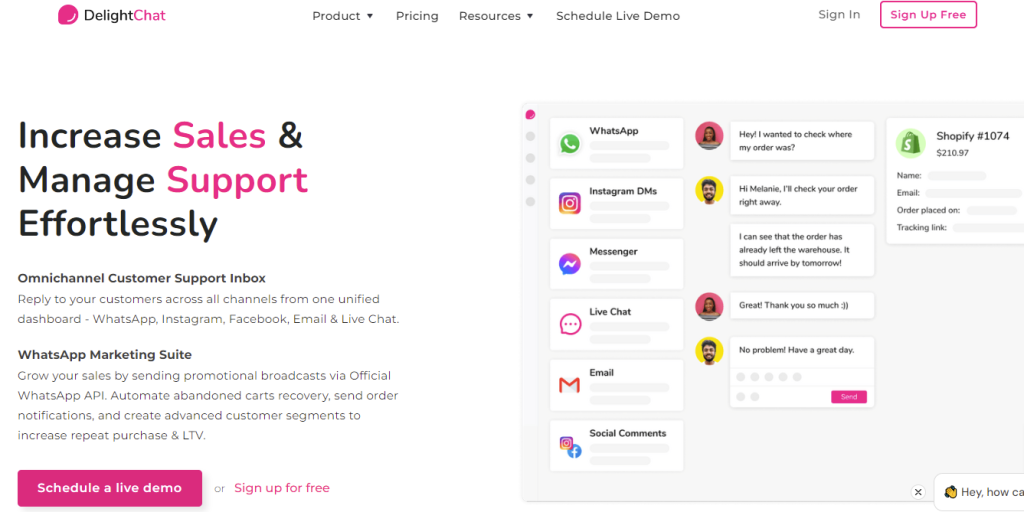
DelightChat is an omnichannel marketing tool that helps e-commerce businesses utilize messaging platforms like WhatsApp, Facebook Messenger, Gmail, and Instagram DMs to market and provide customer support. This e-commerce tool is a leading platform for recovering abandoned carts and sending accurate order updates. Additionally, it provides a seamless onboarding process and various other features such as COD verification, ROI analytics, and a smooth integration with Shopify stores.
22. Alloy

Alloy is an eCommerce automation tool that allows eCommerce brands to integrate with several tech stacks to enhance eCommerce operations and customer experiences. In addition, the platform has recently launched a B2B solution – Alloy Embedded, which provides seamless embedding solutions to SaaS platforms for adding third-party eCommerce data and functionalities.
Alloy supports six eCommerce platforms (Shopify, Webflow, WooCommerce, Magento, etc.) with the unified goal of making automation accessible to all online businesses. The platform owners also believe in removing monotonous processes to build a more productive working environment.
If you are unsure where to begin, surf Alloy’s marketplace. It features multiple app integrations and ready-to-use cards that can be curated to satisfy specific business needs. The best part? You can get a hands-on experience for free.
23. Listrak

Listrak is an omnichannel marketing platform that empowers retailers and brands to grow revenue through cross-platform marketing efforts.
Reach out and retarget customers throughout their journey with optimized emails, SMS, and mobile push notifications. Using the platform, brands can listen and respond to customer signals, pushing them to move from one step of the buying journey to the next.
Brands can create responsive and appealing email designs, leverage abandoned cart messaging suites, and use detailed analytics provided to understand the behavioral triggers of consumers’ behavior, amongst other things, to enhance the performance of their marketing campaigns.
24. Omnisend
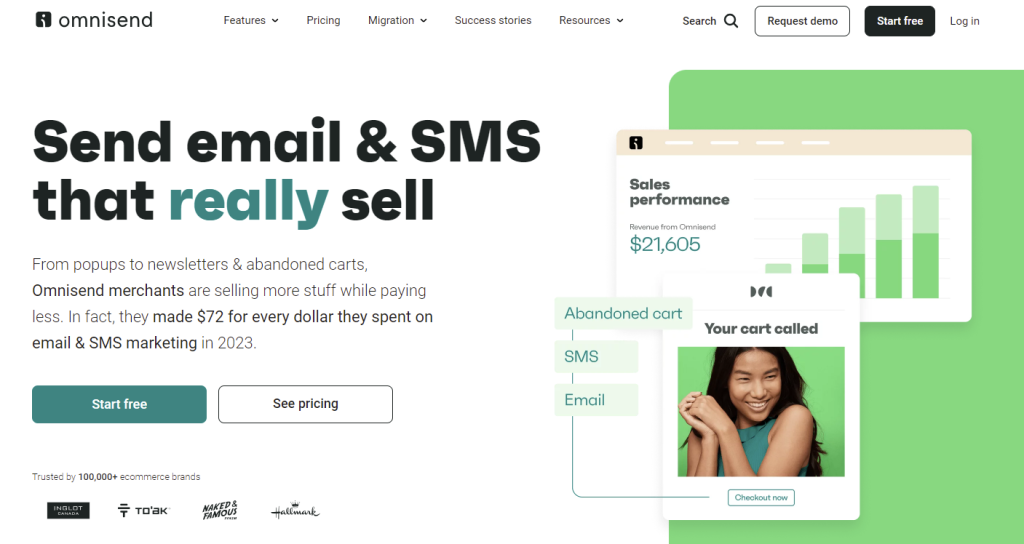
Omnisend is yet another easy-to-use marketing automation platform that helps eCommerce brands lock growth without having you run wild. It helps keep the shoppers engaged throughout their lifecycle by sending relevant emails or SMS, encouraging them to complete their purchases.
Ecommerce brands are also empowered to personalize the already available email and SMS templates to enhance earnings by sending cart recovery to post-purchase, customer experience campaigns, and more.
Additionally, you can leverage audience segmentation based on campaign activity and shopping behavior to make audience targeting possible with the right message delivered at the right time. Relish the power of sales at every stage of the buyers’ journey.
25. Narrato AI
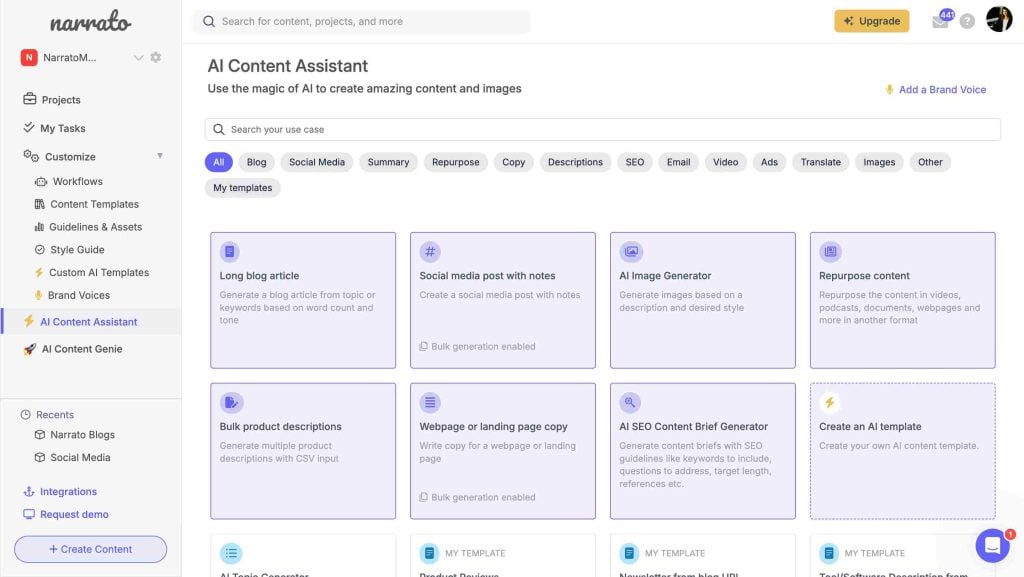
Narrato is an AI content platform perfect for eCommerce businesses, featuring a comprehensive suite of 100+ AI tools and templates for eCommerce marketing. There is an AI description generator capable of crafting anything from one to hundreds of product descriptions for your site. Other key features include an AI copywriter for generating landing pages and ads, an AI blog writer that can generate complete blog articles with just one click, and a unique tool, AI Content Genie, that automatically generates content for your blog and social.
Narrato also supports custom AI templates for bulk content production and one-click publishing across platforms. SEO-friendly features like content briefs and meta descriptions further enhance your visibility.
With strong project management and content planning, creation, and collaboration, Narrato AI is a comprehensive solution for handling all your eCommerce marketing needs. If you’re looking to strengthen your ability to manage such multifaceted content workflows, a project management course can be an excellent way to build the necessary skills.
26. WP Social Ninja
WP Social Ninja is a dynamic marketing tool designed to expand your visibility, build trust, and push sales. But how does it achieve this? The answer lies in its all-in-one capabilities. With WP Social Ninja, you can display social feeds with user-generated content from over four platforms and even embed Instagram feeds on the website.
This WordPress plugin also collects customer reviews from 9+ popular platforms like WooCommerce, Google Business Profile, Facebook, and more, helping to build trust with your website visitors. Additionally, you can showcase these reviews on a dedicated page as notification popups. The plugin also has features like testimonials with advanced modification options.
If the user needs more supportive features, then the e-commerce business owners can connect their social chat platforms to WP Social Ninja. This lightweight and easy-to-use social media plugin will give you the option to connect chat widgets from 15+ platforms like WhatsApp, Messenger, and others. This lightweight, user-friendly plugin offers endless features and customization options, making it an essential marketing tool for any ecommerce business.
26. testRigor
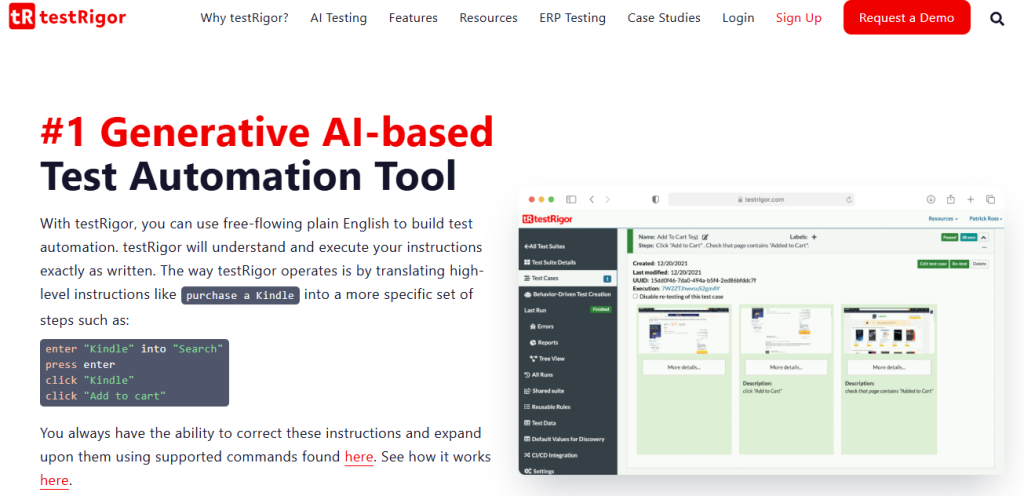
testRigor is an AI-powered, no-code automation platform built specifically to make e-commerce software testing faster, more reliable, and accessible to non-technical teams. Instead of writing scripts, your team can describe tests in plain English (for example, “add product X to cart and complete checkout with coupon Y”), and testRigor automatically turns those steps into stable, executable tests.
This is especially valuable for e-commerce brands that constantly ship new features, update product catalogs, and run campaigns where a small bug in search, cart, or checkout can instantly hurt revenue. With testRigor, you can continuously validate key user journeys like add-to-cart, payment flows, discounts, and account sign-in across browsers and devices, without relying on a large automation engineering team.
27. SellerApp:
If you’re serious about selling on Amazon and scaling to unprecedented levels, you will need data. This can be ad performance or even data at the category level. Either way, you will need an ecommerce intelligence tool such as SellerApp that can help streamline your data requirements.
However, SellerApp is more than an analytics tool—it’s a full-fledged ecommerce accelerator empowering brands to scale seamlessly across Amazon, Walmart, Flipkart, and other major marketplaces.
With AI automation, deep marketplace intelligence, and real-time performance analytics, SellerApp optimizes ad spend, enhances visibility, and maximizes profitability. It give you the capability to execute smarter bid optimizations.
Of course, as mentioned earlier, it provides amazing category intelligence, and competitive benchmarking, and insights that can help you capture more market share from your competitors.
As a trusted data partner for CPG giants like Coca-Cola, SellerApp delivers market intelligence and actionable insights. Its multi-marketplace capabilities, optimization and automation features help brands drive immense growth across platforms. In addition to all of these, there are several other tools such as listing optimization, keyword and product tracking, custom reports and cool features that equip sellers to ensure sustained success.
Ultimately, whether refining campaigns, expanding to new markets, or leveraging data for smarter growth, SellerApp ensures you stay ahead in the ever-evolving ecommerce landscape.
Conclusion
E-commerce brands are scaling different heights, but getting past the competition isn’t a cakewalk. Besides an impeccable strategy, getting hands-on tools that help escalate the strategy is non-negotiable.
While the eCommerce tools market is flooded, figuring out the ones that perform can be yet another tedious task. Leverage this blog as your guide to learn about the top result-oriented e-commerce tools.







